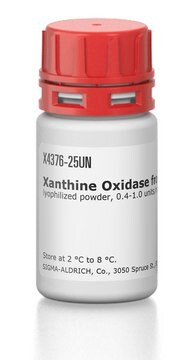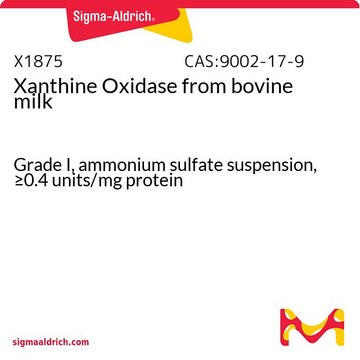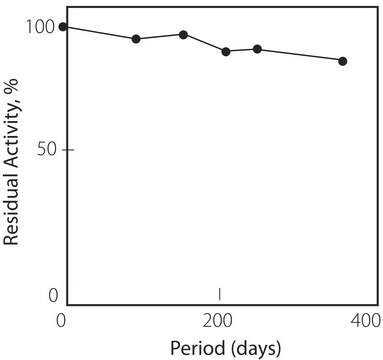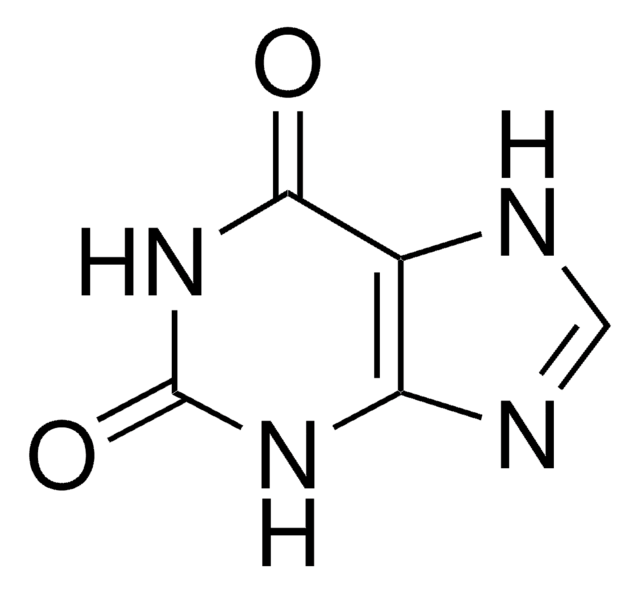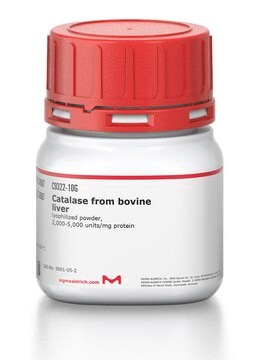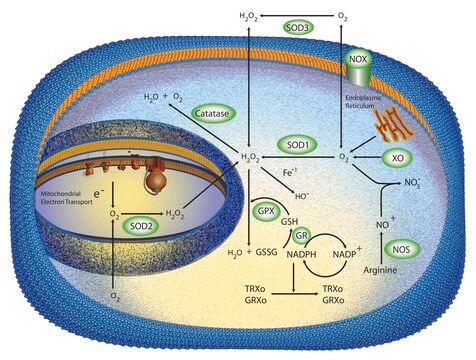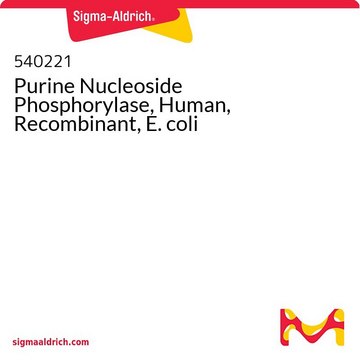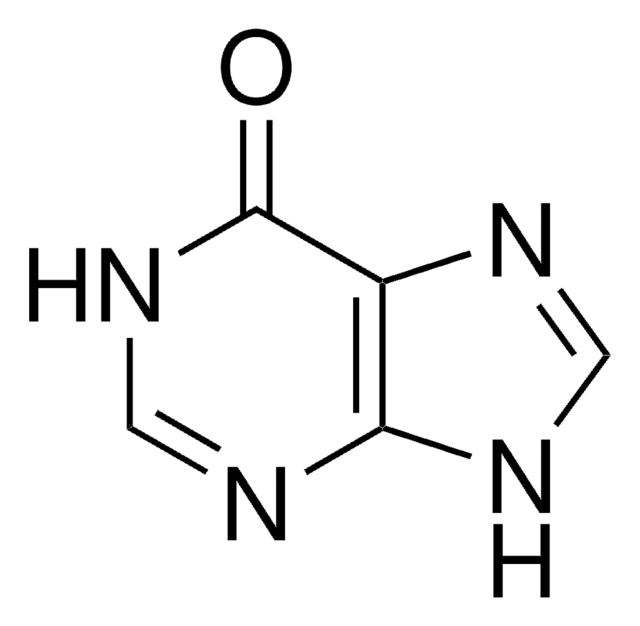X4500
Xanthine Oxidase from bovine milk
Grade III, ammonium sulfate suspension, ≥0.8 units/mg protein
Synonym(s):
Schardinger enzyme, XnOx, hypoxanthine oxidase, XOD, Xanthine:oxygen oxidoreductase
About This Item
Recommended Products
biological source
bovine milk
Quality Level
type
Grade III
form
ammonium sulfate suspension
specific activity
≥0.8 units/mg protein
technique(s)
inhibition assay: suitable
color
faint brown to dark brown
UniProt accession no.
foreign activity
uricase ≤0.1%
storage temp.
2-8°C
Looking for similar products? Visit Product Comparison Guide
General description
Xanthine Oxidase (XO) belongs to the class of complex metalloflavoproteins. It is produced by oxidation of sulfhydryl residues or by proteolysis of xanthine dehydrogenase (XDH). XO is characterized with two flavin molecules (FAD), two molybdenum atoms, and eight iron atoms bound per enzymatic unit.
Application
- as a source for superoxide generation
- for the degradation of hypoxanthine
- for the detection of reactive oxygen species (ROS) in lipid model by electron spin resonance (ESR) spin trap method
- as a constituent of assay mixture in xanthine oxidase inhibition assay
Biochem/physiol Actions
Unit Definition
Physical form
Preparation Note
Storage and Stability
persons
Analysis Note
substrate
Signal Word
Danger
Hazard Statements
Precautionary Statements
Hazard Classifications
Resp. Sens. 1
Storage Class Code
11 - Combustible Solids
WGK
WGK 3
Flash Point(F)
Not applicable
Flash Point(C)
Not applicable
Personal Protective Equipment
Choose from one of the most recent versions:
Already Own This Product?
Find documentation for the products that you have recently purchased in the Document Library.
Customers Also Viewed
Articles
Instructions for working with enzymes supplied as ammonium sulfate suspensions
Our team of scientists has experience in all areas of research including Life Science, Material Science, Chemical Synthesis, Chromatography, Analytical and many others.
Contact Technical Service